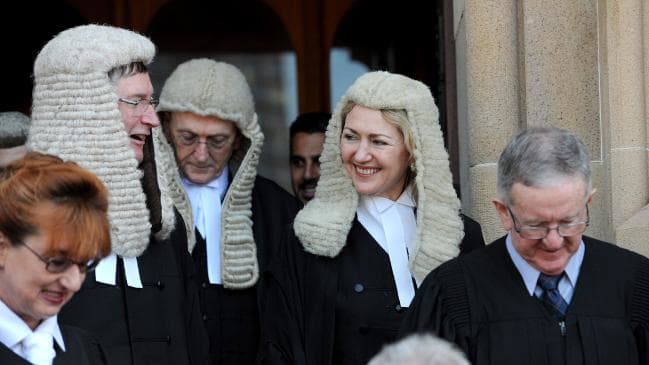
NSW prosecutor Margaret Cunneen SC has called for the state’s anti-corruption agency to be subjected to a new system of merits review aimed at weeding out mistakes that currently remain uncorrected.
Ms Cunneen questioned why those who are found to be corrupt by ICAC, but who are never charged with any offences, have no way of testing the merits of the commission’s findings.
“What about these people who have no form of redress?,” Ms Cunneen said.
“They are not guilty of any crimes, what do they do? What is the remedy for them?
“At the moment, the only thing such a person can do is seek judicial review on a very narrow basis, but there is no merits review. There is no chance to go to any court and say ‘ICAC was wrong to call me corrupt’.
“There is no such review and there really must be a review.”
Her remarks come after leading silk Bret Walker SC last month called for ICAC and equivalent agencies to be stripped of the power to make public findings of corruption because it threatens the concept of a fair trial.
Mr Walker said in his June 5 Whitlam Oration that such findings amounted to “misinformation” and no other agency that briefs prosecutors informs the community “that the person in question is a criminal”.
In an address on the rule of law delivered on Wednesday, Ms Cunneen endorsed remarks by NSW Chief Justice Tom Bathurst, who told newly admitted lawyers last week that they had a duty to ensure the protection of the rule of law was not whittled away.
Ms Cunneen told the Order of Australia Association on Wednesday that allegations of wrongdoing that come before the courts are subjected to “many sets of eyes”, which ensured ordinary citizens were not subject to the arbitrary views of individuals in positions of power. But Ms Cunneen endorsed a warning from former NSW Bar Association president Phillip Boulten SC about the growth of a “parallel system of justice” in which the protections of the common law justice system were not present.
Ms Cunneen, who is a deputy senior Crown prosecutor, was wrongly accused by ICAC of misconduct over a traffic accident at which she was not present.
The High Court rejected ICAC’s appeal in 2015 and found that the commission had been under a misapprehension about the extent of its jurisdiction.
Former ICAC Commissioner Megan Latham then lobbied the NSW government to enact retrospective legislation that validated ICAC decisions that would otherwise have been unlawful.
Ms Cunneen said the High Court’s decision amounted to recognition that the commission “had been operating without any knowledge of what corruption was for quite a few years”.
“As a result it has done some crazy things — some very crazy things,” she said.
She noted that the commission had failed to disclose until this year that a 2013 report from an inquiry known as Operation Jasper had relied upon evidence from a brain- damaged witness who had amnesia.
The cognitive impairment of that witness, Paul Gardner Brook, is outlined in a medical report that was disclosed by ICAC in March — almost five years after former commissioner David Ipp presented parliament with a report that praised Mr Brook’s performance in the witness box.
Those responsible for suppressing the medical report on Gardner Brook’s impairment have not been identified.
Ms Cunneen said it appeared the medical report had only become public because of the integrity of ICAC’s Chief Commissioner Peter Hall, who took office last year and had issued guidelines to staff on the need to disclose exculpatory evidence.
Chris Merritt
Legal Affairs Editor – The Australian
(WTF) used with permission
